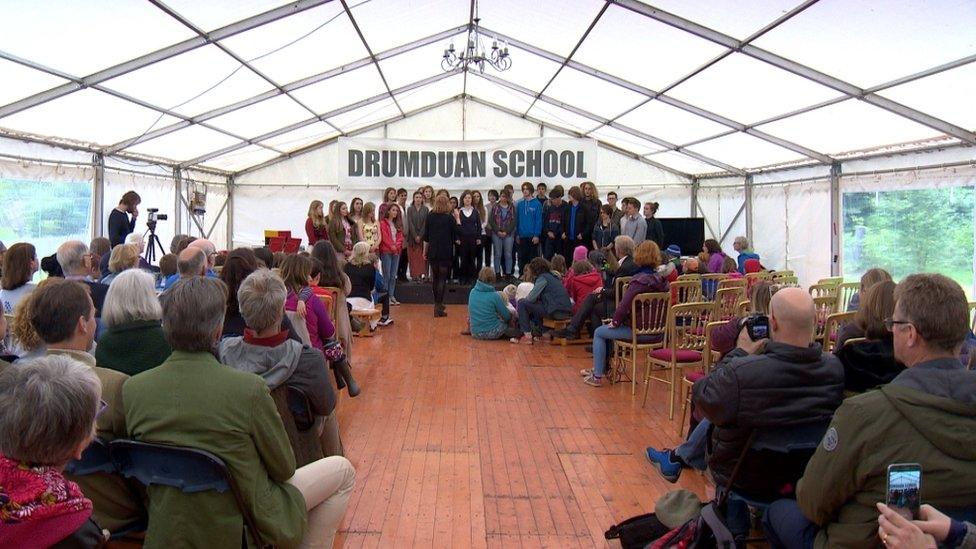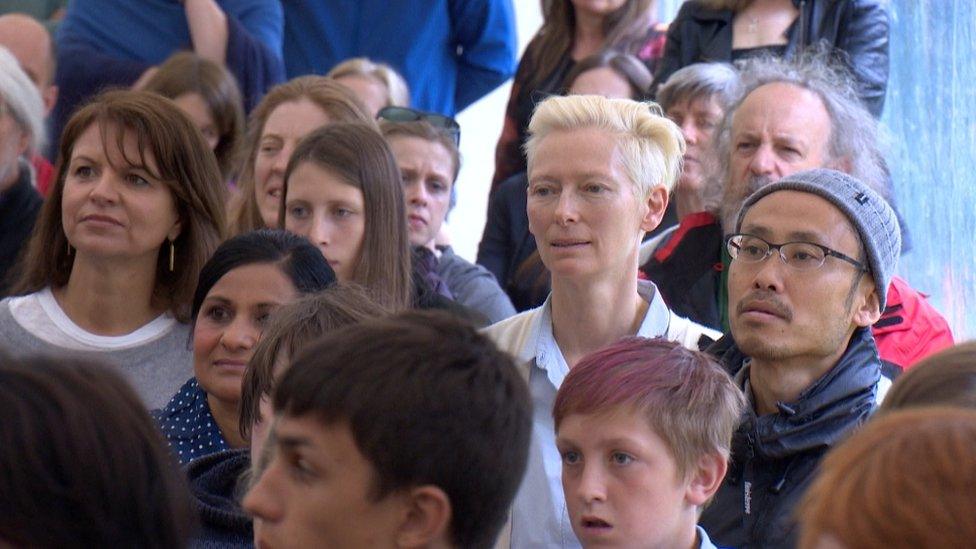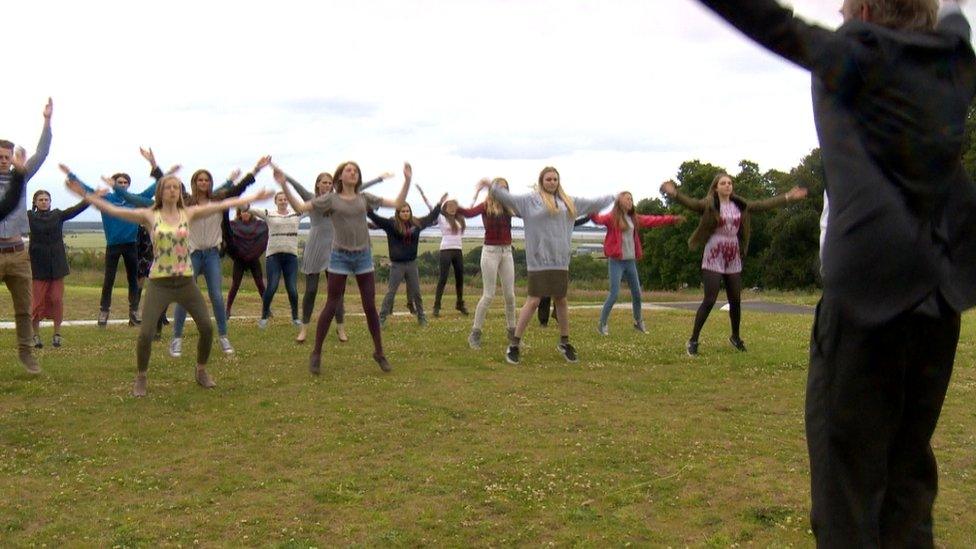School where pupils sit no exams and leave with no qualifications
- Published

Graduation day at Drumduan School in Moray
It is the end of term for Scotland's schools and one group of 16 leavers will move on to further education without having sat a single exam. They are pupils of Drumduan School, an alternative school co-founded by actress Tilda Swinton.
Drumduan, near Forres in Moray, prides itself on more alternative, practical learning, free from the mainstream pressures of pupils sitting tests or even sitting at desks.
Tai chi-style exercise is the first class of the day, while the teaching of science can involve canoe building or cooking. As little time as possible is spent in the classroom.
Head teacher Krzysztof Zajaczkowsk says the aim of the school's curriculum is to "unleash the true potential" of every child.
"At the moment education is still in a post-industrial Victorian model," he says.
"What we want to do is broaden it, widen it, make many more possibilities for young people in terms of building their resilience, their courage, compassion - life skills - but also academic skills."

Actress Tilda Swinton helped to co-found the school attended by her twin children
Ahead of the final day of term, a graduation is held for those leaving school.
Hollywood actress Tilda Swinton, a co-founder of Drumduan, has left the limelight temporarily to watch her own twin children perform at their last class concert.
While the twins and the other school leavers do not have any qualifications, their achievements are portfolio-based and half will go onto further education including degree courses.
Scarlett Winter, 18, who wants to pursue a career in the arts says her time at the school has been life changing.
She says: "I feel like I have gained my life back.
"I feel like a whole, nourished individual, while before I was pressured living in this sort of society I felt I did not fit into."

Tai chi-style exercise marks the start of the school day
The school says colleges and universities are becoming more open to entrants from non-mainstream schools like Drumduan, but Mr Zajaczkowsk admits changing attitudes will take time.
He describes the process as like turning an "enormous tanker" at sea.
"It won't happen overnight, but I think everyone knows the system has to change," he says.
"We are speaking to colleges and universities and they are very excited by our model."
Traditional educationalists may take some convincing, but Drumduan's leaders say demand for this alternative style of learning is on the increase with more than 20 new pupils due to start at the private school next term.